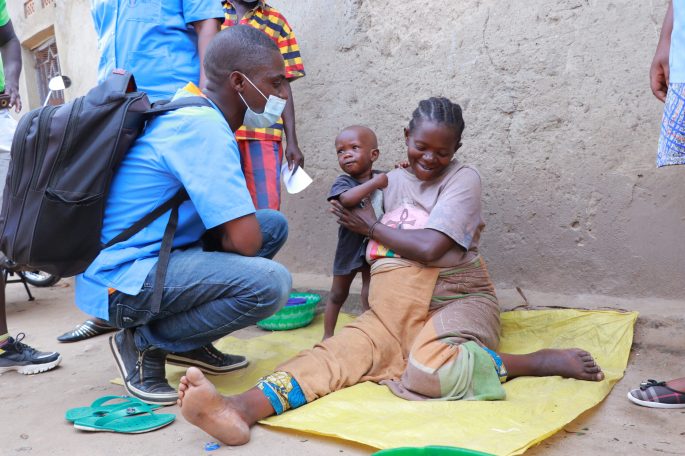By Sara Gomez
Evidence from a study on the “Potential impact of midwives in preventing and reducing maternal and neonatal mortality and stillbirths,” published by Lancet Global Health in 2021, shows that if midwife-led care is fully resourced by 2035, 67% of maternal deaths, 64% of newborn deaths, and 65% of stillbirths could be averted. This would save approximately 4.3 million lives per year.
International Confederation of Midwives (ICM), one of FP2030’s global partners, is fostering a movement for midwifery to increase the availability, accessibility, and quality of comprehensive sexual and reproductive health services. ICM does this by enabling and strengthening partnerships, advocacy, and communications for midwifery, with women’s voices at the center and ensuring the training and recruitment of midwives. And an important part of the work involves increasing midwives’ role in the provision of contraceptive services.
Faridah Luyiga Mwanje is based in Uganda. She works across the globe in partnership with the UN Population Fund (UNFPA), World Health Organization (WHO), local midwives’ associations, and other agencies to expand the role of midwives and improve their working conditions.
She leads ICM’s advocacy work, building the capacity of national midwifery associations, supporting them in mobilizing and advocating for improved policies and resources for midwives in their countries, amplifying their voices at both the national and global levels, and developing advocacy tools and resources.
“As an advocate for midwives and midwifery, and the key role that health workers and their associations play in improving health outcomes for women and newborns, I am privileged to be working on sexual and reproductive health and rights from a supply-side perspective, having initially advocated for the same from a demand-side perspective.
“Over the years, I have seen midwives make a difference, even in under-resourced settings, and it is quite humbling for me. I can only imagine how much more they can deliver in a supportive environment working in sufficient numbers, with adequate infrastructure and with adequate medicines and supplies. And that inspires me to advocate for midwives and midwifery.”
“We need to work to create an enabling environment for midwives to contribute effectively. That’s one of the reasons ICM joined the FP2030 partnership: to see how we can work together to improve education, regulation, leadership, strengthening of associations and optimizing the scope of practice for midwives, so they’re able to perform their broader role.”
Through its partnership with FP2030, ICM is committed to ensuring the inclusion of midwives in health leadership positions. One way it does this is by building the skills, knowledge, and confidence of young midwives in leadership and advocacy so that they can be advocates for the midwifery profession, for sexual and reproductive health and rights, gender equality, and human rights more broadly.
“Being part of a partnership allows you to amplify voices, enabling you to speak with a louder and more coordinated voice. By working together, you can achieve more, an increased visibility for the issues that you’re championing, and partners feel proud to be associated with the effort and to have contributed to the broader goal.”
Like ICM, many of FP2030’s partners are partnerships themselves and working together helps to amplify their strength and visibility. Part of ICM’s FP2030 commitment is its Young and Executive Midwife Leaders program, a two-year part-time professional development program for young and executive midwives from ICM’s member associations. Augustin Harushimana is an enthusiastic participant in the current cohort of Young Midwife Leaders. He is also president and founder of the Midwife in Action Association in Burundi, a nonprofit organization dedicated to improving maternal and child health by strengthening capacities of midwives across the country. The organization became a member of ICM in 2021.
With ICM’s support, Midwife in Action has been increasing visibility and respect for midwives throughout the country. Activities have included organizing a national conference on midwifery (2021 and 2023) and a widely broadcasted event for the International Day of Midwives (2022). Midwife in Action is now invited by the Ministry of Health to all meetings and workshops on sexual and reproductive health. It supported the Ministry in developing the 2024-2027 national strategic plan for family planning, and its advocacy efforts have led to increased involvement of midwives in sexual and reproductive health services throughout Burundi.
Augustin is proud to be working closely with decision-makers on sexual and reproductive health in Burundi:
“I’m here because of this visibility.”
